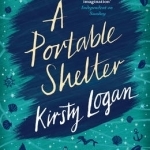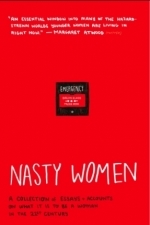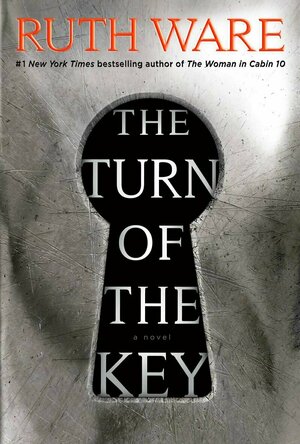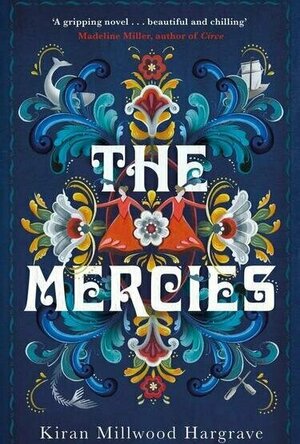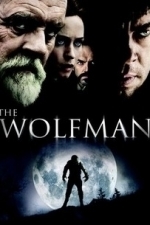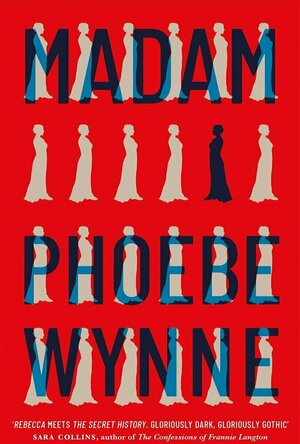Search
Search results
Eilidh G Clark (177 KP) rated A Portable Shelter in Books
May 13, 2017
‘…there’s no other way to give you the truth except to hide it in a story and let you find your own way inside.’
‘…there’s no other way to give you the truth except to hide it in a story and let you find your own way inside.’
Kirsty Logan’s first collection of short stories, The Rental Heart and Other Fairytales, published by Salt in 2014, won the Polari First Book Prize in 2015. A Portable Shelter is her second collection. Set in a small cottage in the rural north coast of Scotland, Ruth and Liska are expecting their first child. The couple believe that their unborn baby will have a better chance of survival away from the harshness of suburban life. They make a pact with one another, that they will only ever tell their child the truth. Yet while Liska is asleep or Ruth is at work, each whispers secret stories to their unborn child. Delving into fantastical tales about people from their past and re-telling stories that span from generation to generation, the couple unfold the horrors of the real world. Whilst these tales, laced in myth and legend, and fattened with the magic of the imagination, demonstrate the art of oral storytelling, Logan reaches further to show the reader why storytelling is important.
While this book is primarily a collection of short stories, its novel like structure frames each story with a preceding monologue from either Ruth or Liska. The monologues offer delightful morsels of description that bring the harshness of Mother Nature into the safety of the couple’s bedroom, “right now our home is speaking to you. The walls creak their approval in the wind. The rain applauds on the roof. The lighthouse beam swoops, swoops, swoops. The tide breathes loud and slow like a giant. If you listen carefully, perhaps you can even hear the moon hum.” The pace of these sentences, combined with the delicacy of language demonstrates Logan’s skill at describing the sublime spirit of the natural world, which brings the narrative to life.
Most impressive though, is Logan’s poetic language and carefully crafted sentences which create the most beautiful imagery. In ‘Flinch,’ for example – James is a fisherman struggling with his identity, yet his affiliation with the land is locked into his first-person point of view where the reader gets to closely experience what he sees, “The sky is pinkish-grey like the insides of shells. Speckled bonxies wheel overhead. Seals loll on the rocks, fat as kings. The rising mist is cool and milky.” Any of these lines could easily be arranged into a poem and with sentences that are squeezed tight; they create a wonderful poetic rhythm. Logan uses this technique throughout her novel, demonstrating the precision and craft in her work. There are definite similarities in her writing style to fellow Scottish novelist and poet Jenni Fagan. Both authors use rich language, which is well crafted and smattered with vernacular. Furthermore, combining this with the reoccurring theme of identity, the oral storytelling tradition, landscape, folklore, and myth, it is clear to see why these authors contribute to the growing canon in Scottish literature.
This is a book that I will read over and over again because I know that in each reading, I will find something new. A Portable Shelter, I feel, deserves a place on my ‘keep’ book shelf.
A Portable Shelter, Kirsty Logan, London: Vintage, 2015
Kirsty Logan’s first collection of short stories, The Rental Heart and Other Fairytales, published by Salt in 2014, won the Polari First Book Prize in 2015. A Portable Shelter is her second collection. Set in a small cottage in the rural north coast of Scotland, Ruth and Liska are expecting their first child. The couple believe that their unborn baby will have a better chance of survival away from the harshness of suburban life. They make a pact with one another, that they will only ever tell their child the truth. Yet while Liska is asleep or Ruth is at work, each whispers secret stories to their unborn child. Delving into fantastical tales about people from their past and re-telling stories that span from generation to generation, the couple unfold the horrors of the real world. Whilst these tales, laced in myth and legend, and fattened with the magic of the imagination, demonstrate the art of oral storytelling, Logan reaches further to show the reader why storytelling is important.
While this book is primarily a collection of short stories, its novel like structure frames each story with a preceding monologue from either Ruth or Liska. The monologues offer delightful morsels of description that bring the harshness of Mother Nature into the safety of the couple’s bedroom, “right now our home is speaking to you. The walls creak their approval in the wind. The rain applauds on the roof. The lighthouse beam swoops, swoops, swoops. The tide breathes loud and slow like a giant. If you listen carefully, perhaps you can even hear the moon hum.” The pace of these sentences, combined with the delicacy of language demonstrates Logan’s skill at describing the sublime spirit of the natural world, which brings the narrative to life.
Most impressive though, is Logan’s poetic language and carefully crafted sentences which create the most beautiful imagery. In ‘Flinch,’ for example – James is a fisherman struggling with his identity, yet his affiliation with the land is locked into his first-person point of view where the reader gets to closely experience what he sees, “The sky is pinkish-grey like the insides of shells. Speckled bonxies wheel overhead. Seals loll on the rocks, fat as kings. The rising mist is cool and milky.” Any of these lines could easily be arranged into a poem and with sentences that are squeezed tight; they create a wonderful poetic rhythm. Logan uses this technique throughout her novel, demonstrating the precision and craft in her work. There are definite similarities in her writing style to fellow Scottish novelist and poet Jenni Fagan. Both authors use rich language, which is well crafted and smattered with vernacular. Furthermore, combining this with the reoccurring theme of identity, the oral storytelling tradition, landscape, folklore, and myth, it is clear to see why these authors contribute to the growing canon in Scottish literature.
This is a book that I will read over and over again because I know that in each reading, I will find something new. A Portable Shelter, I feel, deserves a place on my ‘keep’ book shelf.
A Portable Shelter, Kirsty Logan, London: Vintage, 2015
Eilidh G Clark (177 KP) rated Nasty Women in Books
May 13, 2017
Nasty women is hard-hitting, eye-opening, and unashamedly honest.
‘Sometimes the role model you need is not an example to aspire to, but someone who reflects back the parts of yourself that society deems fit.’ -
Becca Inglis
Nasty Women, published by 404 ink, is a collection of essays about what it is, and how it feels to be a woman in the 21st century. When I first picked up the book, I assumed, like I think most readers would, that it would be an easy book to just pick up and put down whenever I had a spare ten minutes. Wrong, I was sucked into this book right from the beginning, and read it all in a day. That doesn’t mean it was an easy read, or perhaps easy is the wrong word – it isn’t a comfortable read - and it isn’t meant to be. Nasty women is hard-hitting, eye-opening, and unashamedly honest.
The book opens with ‘Independence Day’ by Katie Muriel. A story of mixed race and identity in Trump’s America, Muriel discusses her experience of inter-family racism, heightened by political differences, ‘This is not the first, nor is it the last family divide Trump will leave in his wake, but I refuse to think of him as some deity who stands around shifting pieces on a board in his golden war room.’ The anger in this piece is clear, but it is the rationalism and clarity of the writer that speaks volumes. Race, racism and xenophobia, is a prominent feature in these stories. Claire L. Heuchan, for example, talks about ‘Othering’ a term that readers will see repeatedly in this book, ‘Scotland,’ she writes, ‘is a fairly isolating place to be a black woman.’
Survival is a key trope in Nasty Women. Mel Reeve, in ‘The Nastiness of Survival,’ talks about being a survivor of rape and emotional abuse, ‘I do not fit the ‘right’ definition of someone who has been raped.’ This statement alone is filled with irony.
I was particularly drawn to Laura Waddell’s essay, ‘Against Stereotypes: Working Class Girls and Working Class Art.’ Laura talks about the difficulty of both gender and class inequality, and, in particular, the lack of working class writers and working class fiction being published, ‘I have read a lot of fiction’ she says, ‘I have read almost none from housing estates such as the one I grew up on. These stories are missing, from shelves, and from the record.’ As a Scottish fiction writer from a working-class background myself, these words resonate deeply.
Alice Tarbuck’s ‘Foraging and Feminism: Hedge-Witchcraft in the 21st Century’, is almost fun to read in a deeply devastating way. There is a desperate tone in this piece, and a desperate need to escape society. ‘There is beauty and bounty around us if we look for it, and perhaps that is all the magic we need. Or perhaps, what we need is real magic, whether that comes in the form of resistance and community or the form of blackthorn charms and skullcap tinctures, and howling to the moon.
I loved this book. This book gives women a voice. And it is loud! Well done 404 Ink, and all the contributors, for bravely breaking the silence.
Becca Inglis
Nasty Women, published by 404 ink, is a collection of essays about what it is, and how it feels to be a woman in the 21st century. When I first picked up the book, I assumed, like I think most readers would, that it would be an easy book to just pick up and put down whenever I had a spare ten minutes. Wrong, I was sucked into this book right from the beginning, and read it all in a day. That doesn’t mean it was an easy read, or perhaps easy is the wrong word – it isn’t a comfortable read - and it isn’t meant to be. Nasty women is hard-hitting, eye-opening, and unashamedly honest.
The book opens with ‘Independence Day’ by Katie Muriel. A story of mixed race and identity in Trump’s America, Muriel discusses her experience of inter-family racism, heightened by political differences, ‘This is not the first, nor is it the last family divide Trump will leave in his wake, but I refuse to think of him as some deity who stands around shifting pieces on a board in his golden war room.’ The anger in this piece is clear, but it is the rationalism and clarity of the writer that speaks volumes. Race, racism and xenophobia, is a prominent feature in these stories. Claire L. Heuchan, for example, talks about ‘Othering’ a term that readers will see repeatedly in this book, ‘Scotland,’ she writes, ‘is a fairly isolating place to be a black woman.’
Survival is a key trope in Nasty Women. Mel Reeve, in ‘The Nastiness of Survival,’ talks about being a survivor of rape and emotional abuse, ‘I do not fit the ‘right’ definition of someone who has been raped.’ This statement alone is filled with irony.
I was particularly drawn to Laura Waddell’s essay, ‘Against Stereotypes: Working Class Girls and Working Class Art.’ Laura talks about the difficulty of both gender and class inequality, and, in particular, the lack of working class writers and working class fiction being published, ‘I have read a lot of fiction’ she says, ‘I have read almost none from housing estates such as the one I grew up on. These stories are missing, from shelves, and from the record.’ As a Scottish fiction writer from a working-class background myself, these words resonate deeply.
Alice Tarbuck’s ‘Foraging and Feminism: Hedge-Witchcraft in the 21st Century’, is almost fun to read in a deeply devastating way. There is a desperate tone in this piece, and a desperate need to escape society. ‘There is beauty and bounty around us if we look for it, and perhaps that is all the magic we need. Or perhaps, what we need is real magic, whether that comes in the form of resistance and community or the form of blackthorn charms and skullcap tinctures, and howling to the moon.
I loved this book. This book gives women a voice. And it is loud! Well done 404 Ink, and all the contributors, for bravely breaking the silence.
Kristy H (1252 KP) rated The Turn of The Key in Books
Aug 16, 2019
Rowan Caine feels like her life is at a bit of a dead end when she finds the advertisement: it's for a live-in nanny, and the pay is amazing. Rowan has a background in nannying and working with children, so she submits her CV and crosses her fingers. Still, she can't believe her luck when she interviews at the gorgeous Heatherbrae House in Scotland. It's isolated, but beautiful. And then she gets the job caring for four seemingly lovely children: Rhiannon, 14; Maddie, 8; Ellie, 5; and Petra, eighteen months. But the position isn't all it cracked up to be. The children are nothing like the sweet kids they appeared when she interviewed. The entire house is a smart home, controlled by a home management app, and it seems to go haywire constantly. The parents leave nearly the moment she arrives. And it really seems like the rumors of ghosts and a haunted house that drove away the past four nannies are true. We know Rowan is writing about all of this from prison--jailed for the death of one of the children. She claims she's innocent. What really happened at Heatherbrae House?
This was a very intriguing, eerie thriller, made all the more creepy by reading it alone in a cabin in the woods with no one beside me but my dog. Perhaps choosing this read for my short getaway was a mistake? Ha, I actually liked getting a little spooked by this Gothic mystery. It was an enjoyable slow-burning read that kept me hooked.
As mentioned, the entire book is told in letter form--albeit mostly one long letter--as Rowan sits in Scottish prison, trying to convince a Mr. Wrexham to take up her case. She's innocent, she says, and here is her story. And quite a story it is. From the moment Rowan arrives at the Elincourt's beautiful home, Heatherbrae House, it seems like things go wrong--she hasn't memorized the 300-page "manual" required to watch the girls, the "smart" house is out of control, and the children are absolute terrors.
"I guess it comes down to this in the end. I am the nanny in the Elincourt case, Mr. Wrexham. And I didn't kill that child."
But the more we hear from Rowan, we learn she may not be completely guilt-free in all of this, as perhaps there is more to her story than meets the eye. It all unfurls easily in Ware's deft hands. It may take a while to get to some of the major twists and turns, but there's plenty of little bits of creepiness along the way. Rowan is sure she's being haunted, and it's quite fun to try to figure out what exactly is happening. Ghosts? The smart house gone awry? While Rowan isn't always the easiest character to root for, I still sympathized with her (I wouldn't want to be left with four combative children) and yet I found myself getting attached to the kids anyway (clearly they didn't choose to be left behind by their rich and distracted parents).
"I need you to understand why I did what I did."
Overall, this one is a fun, eerie read. I enjoyed the combination of creepy Gothic plus smart home craziness. I also couldn't always foresee what was coming up next, which I appreciated. It's engaging and surprising, despite our limited cast of characters. 4 stars.
This was a very intriguing, eerie thriller, made all the more creepy by reading it alone in a cabin in the woods with no one beside me but my dog. Perhaps choosing this read for my short getaway was a mistake? Ha, I actually liked getting a little spooked by this Gothic mystery. It was an enjoyable slow-burning read that kept me hooked.
As mentioned, the entire book is told in letter form--albeit mostly one long letter--as Rowan sits in Scottish prison, trying to convince a Mr. Wrexham to take up her case. She's innocent, she says, and here is her story. And quite a story it is. From the moment Rowan arrives at the Elincourt's beautiful home, Heatherbrae House, it seems like things go wrong--she hasn't memorized the 300-page "manual" required to watch the girls, the "smart" house is out of control, and the children are absolute terrors.
"I guess it comes down to this in the end. I am the nanny in the Elincourt case, Mr. Wrexham. And I didn't kill that child."
But the more we hear from Rowan, we learn she may not be completely guilt-free in all of this, as perhaps there is more to her story than meets the eye. It all unfurls easily in Ware's deft hands. It may take a while to get to some of the major twists and turns, but there's plenty of little bits of creepiness along the way. Rowan is sure she's being haunted, and it's quite fun to try to figure out what exactly is happening. Ghosts? The smart house gone awry? While Rowan isn't always the easiest character to root for, I still sympathized with her (I wouldn't want to be left with four combative children) and yet I found myself getting attached to the kids anyway (clearly they didn't choose to be left behind by their rich and distracted parents).
"I need you to understand why I did what I did."
Overall, this one is a fun, eerie read. I enjoyed the combination of creepy Gothic plus smart home craziness. I also couldn't always foresee what was coming up next, which I appreciated. It's engaging and surprising, despite our limited cast of characters. 4 stars.
ClareR (6079 KP) rated The Mercies in Books
Feb 25, 2020 (Updated Feb 25, 2020)
The Mercies is a slow burn of a novel, set in the Arctic town of Vardø in 1617 (Norway, the part that was called Finnmark). On Christmas Eve, whilst all of the men are out fishing, a storm blows in and kills them all. The women are left without their husbands, brothers and fathers, and must learn to fend for themselves. Maren Magnusdatter is one of these women. She watches as her father, brothers and future husband are drowned.
Three years later, a Scot, Absalom Cornet and his young Norwegian wife, Ursa, arrive. Absalom has been appointed Commissioner of Vardø, and is adamant that witchcraft was the cause of the storm three years ago. The fact that the women are surviving and taking on the roles of their dead menfolk doesn’t help their case. Absalom only sees evil, and women who have forgotten their place as servants of God. He is a witch finder, and has been responsible for the prosecution and death of women at home in Scotland. Unsurprisingly, he’s not a very nice character, and I liked NOT liking him, although I couldn’t help but feel sorry for Ursa. She is shy and inexperienced in the ways of the world. She has been shut away, caring for her sick younger sister. She knows nothing of what is expected of her as a wife - in every sphere. She doesn’t know how to keep a house at all. This is where Maren steps in as an advisor. They become good friends, and there is the beginnings of something more than just a simple friendship. I loved the interactions between these two women. Maren, strongly independent, competent and lonely, and Ursa, inexperienced, unhappy and lonely. In other circumstances, theirs could have been a good friendship - but unlikely because of social status, I should think.
The writing in this is gorgeous. The descriptions of the landscape and the sea made me feel as though I was standing there with them (warmer though!), and I loved getting to know the women, even the ultra-religious women who were only too keen to give up their fellow towns-women as witches. This part doesn’t happen for quite a while, so we’re given the chance to become emotionally invested in these characters. So when we read of their treatment at the hands of Absalom and his fellow witch hunters, it makes it all the more appalling. If it wasn’t bad enough already.
I love historical fiction, and I really liked how this was written in such a way that these didn’t really seem to be women separated from us by 400 years. They were normal women, working hard to survive and make lives for the,selves. Which made it all the more sad. There’s no way I could detach myself and NOT read this with a modern woman’s eye. These women were punished for something that we take for granted: independence.
Despite the terrible things that happen, it’s a beautifully written, very enjoyable book that I would easily recommend to anyone, even though it’s just like I would imagine the landscape around Finnmark is: bleak, yet beautiful.
Many thanks to NetGalley and the publisher for my copy of this book to read and review.
Three years later, a Scot, Absalom Cornet and his young Norwegian wife, Ursa, arrive. Absalom has been appointed Commissioner of Vardø, and is adamant that witchcraft was the cause of the storm three years ago. The fact that the women are surviving and taking on the roles of their dead menfolk doesn’t help their case. Absalom only sees evil, and women who have forgotten their place as servants of God. He is a witch finder, and has been responsible for the prosecution and death of women at home in Scotland. Unsurprisingly, he’s not a very nice character, and I liked NOT liking him, although I couldn’t help but feel sorry for Ursa. She is shy and inexperienced in the ways of the world. She has been shut away, caring for her sick younger sister. She knows nothing of what is expected of her as a wife - in every sphere. She doesn’t know how to keep a house at all. This is where Maren steps in as an advisor. They become good friends, and there is the beginnings of something more than just a simple friendship. I loved the interactions between these two women. Maren, strongly independent, competent and lonely, and Ursa, inexperienced, unhappy and lonely. In other circumstances, theirs could have been a good friendship - but unlikely because of social status, I should think.
The writing in this is gorgeous. The descriptions of the landscape and the sea made me feel as though I was standing there with them (warmer though!), and I loved getting to know the women, even the ultra-religious women who were only too keen to give up their fellow towns-women as witches. This part doesn’t happen for quite a while, so we’re given the chance to become emotionally invested in these characters. So when we read of their treatment at the hands of Absalom and his fellow witch hunters, it makes it all the more appalling. If it wasn’t bad enough already.
I love historical fiction, and I really liked how this was written in such a way that these didn’t really seem to be women separated from us by 400 years. They were normal women, working hard to survive and make lives for the,selves. Which made it all the more sad. There’s no way I could detach myself and NOT read this with a modern woman’s eye. These women were punished for something that we take for granted: independence.
Despite the terrible things that happen, it’s a beautifully written, very enjoyable book that I would easily recommend to anyone, even though it’s just like I would imagine the landscape around Finnmark is: bleak, yet beautiful.
Many thanks to NetGalley and the publisher for my copy of this book to read and review.
graveyardgremlin (7194 KP) rated Tempest Rising (Jane True, #1) in Books
Feb 15, 2019
Horror, Romance, Mystery, Urban Fantasy? None of those really, though it falls under the UF genre.
I'm not quite sure why TEMPEST RISING is categorized as horror (fantasy - yes, horror - no), as there is nothing horrific at all about the book, except maybe a little bit of violence. The book was slow to start and, sadly, it never really got very far, and ended up more boring than not. The world building was good, and learning about the different species was interesting, but most of it was, at best, just okay.
The character development was next to nil. Jane starts off decent enough, could be fairly witty, but as the book progressed she became less likeable and her inner monologue started to grate on my nerves. Even though she's had some tough experiences, overall she came across as rather juvenile and I wasn't very impressed with her. And how many 'duh' moments could one person possibly have? Yes, she's new to the 'supe' world, yes, she doesn't know all there is to it, but c'mon, use some smarts girl, it's not that hard to put two and two together. So now it comes to Ryu. Oh, Ryu, ye of no personality. You may be hot, but that's all you have going for you. Talk about a flat character, he was pretty darn boring, which was unfortunate because he took up a big part of the book, and I just plain didn't like him. I got pretty sick of Jane and Ryu going at it like rabbits all the time, which would have been better used by giving him some much needed personality. Along with that, maybe an explanation of how Ryu's Japanese (I'm guessing because of his first name and almond eyes) and who also just happens to be a baobhan sith, which is a type of female vampire, from Scotland at that. The most interesting characters were Anyan, and the town pariah's (that's Jane) many friends, both human and non. How a social outcast has so many friends is beyond me, but you know Jane is despised by her woe-is-me attitude and the two people who hate her. Despite what she thinks, I highly doubt the town revolves around her.
Some of the author's descriptions are confusing and I had to reread them to 'get' it. How can something be both squat and tall (pg. 216), pray tell? I'm still pondering that one. Also, the descriptions and analogies could be really odd, and not in a good way, more in a 'where in the world did that come from?' and 'what the heck?' sorta ways. Like what was up with Ryu's laugh? Barking like a seal, giggling like a choking Pomeranian, and whatever other weird ways he laughed. I'm sorry, but that's not very attractive, but I guess it was supposed to be funny and endearing. Editing problems arose when I couldn't figure out if a certain creature was a goblin or gremlin (there is a difference). I finally figured it out when goblin edged out gremlin for the lead. A mistake dealing with the Porsche's trunk was another minor detail that I picked up on, but most people would probably miss it. I only noticed because I've wanted a Porsche since I was ten. :P
The end does show some promise that Jane might actually get some grit, being a half-selkie is a nice change from the supernatural usual after all, and Ryu just might not be featured as much. So, even with all the problems I had with the book, which did unfortunately top what I did like about the book, I probably will check out the next book in the series.
I'm not quite sure why TEMPEST RISING is categorized as horror (fantasy - yes, horror - no), as there is nothing horrific at all about the book, except maybe a little bit of violence. The book was slow to start and, sadly, it never really got very far, and ended up more boring than not. The world building was good, and learning about the different species was interesting, but most of it was, at best, just okay.
The character development was next to nil. Jane starts off decent enough, could be fairly witty, but as the book progressed she became less likeable and her inner monologue started to grate on my nerves. Even though she's had some tough experiences, overall she came across as rather juvenile and I wasn't very impressed with her. And how many 'duh' moments could one person possibly have? Yes, she's new to the 'supe' world, yes, she doesn't know all there is to it, but c'mon, use some smarts girl, it's not that hard to put two and two together. So now it comes to Ryu. Oh, Ryu, ye of no personality. You may be hot, but that's all you have going for you. Talk about a flat character, he was pretty darn boring, which was unfortunate because he took up a big part of the book, and I just plain didn't like him. I got pretty sick of Jane and Ryu going at it like rabbits all the time, which would have been better used by giving him some much needed personality. Along with that, maybe an explanation of how Ryu's Japanese (I'm guessing because of his first name and almond eyes) and who also just happens to be a baobhan sith, which is a type of female vampire, from Scotland at that. The most interesting characters were Anyan, and the town pariah's (that's Jane) many friends, both human and non. How a social outcast has so many friends is beyond me, but you know Jane is despised by her woe-is-me attitude and the two people who hate her. Despite what she thinks, I highly doubt the town revolves around her.
Some of the author's descriptions are confusing and I had to reread them to 'get' it. How can something be both squat and tall (pg. 216), pray tell? I'm still pondering that one. Also, the descriptions and analogies could be really odd, and not in a good way, more in a 'where in the world did that come from?' and 'what the heck?' sorta ways. Like what was up with Ryu's laugh? Barking like a seal, giggling like a choking Pomeranian, and whatever other weird ways he laughed. I'm sorry, but that's not very attractive, but I guess it was supposed to be funny and endearing. Editing problems arose when I couldn't figure out if a certain creature was a goblin or gremlin (there is a difference). I finally figured it out when goblin edged out gremlin for the lead. A mistake dealing with the Porsche's trunk was another minor detail that I picked up on, but most people would probably miss it. I only noticed because I've wanted a Porsche since I was ten. :P
The end does show some promise that Jane might actually get some grit, being a half-selkie is a nice change from the supernatural usual after all, and Ryu just might not be featured as much. So, even with all the problems I had with the book, which did unfortunately top what I did like about the book, I probably will check out the next book in the series.
Gareth von Kallenbach (980 KP) rated The Wolfman (2010) in Movies
Aug 8, 2019
During the golden age of cinematic horror, Lon Chaney terrified audiences with his portrayal of the Wolfman which launched the character as a cultural mainstay.
Over the years there have been countless updates to the tale which ranged from Michael Landon in “I Was a Teenage Werewolf, to the more contemporary “An American Werewolf in London” and “Dog Soldiers”.
With remakes being all the rage in Hollywood, Universal has returned to the original source material to offer an updated version of the original classic.
Set in England near the start of the twentieth century, the film stars Benicio Del Toro as an actor named Lawrence who is summoned home when his brother goes missing. Upon returning to the lavish familial estate, he is greeted by his estranged father, (Sir Anthony Hopkins), who informs him that his brother mutilated body was discovered earlier.
Dismayed by the condition of his brother’s remains, Lawrence decides to stay and get to the bottom of the mystery. When a clue provided by his brother’s fiancé leads him to a Gypsy encampment, Lawrence learns of a curse, but before he can obtain the information he desires, the camp is attacked by a mysterious creature that leaves a horrific path of carnage in its wake and leaves Lawrence badly wounded from a bite.
Lawrence makes an amazing recovery from his wounds and in doing so raises the suspicions of the locals who now see Lawrence as cursed and a threat to their society.
Lawrence has also raised the suspicions of Scotland Yard Inspector, (Hugo Weaving) who is convinced that Lawrence may be a key player in the local horror, as he was confined to an asylum in his childhood following the death of his mother.
At first Lawrence is outraged at the accusations, but when he transforms into a deadly creature and embarks on a deadly killing spree during a full moon, he soon learns a dangerous secret that places not only his life in danger, but endangers all those around him.
In a desperate race against time, Lawrence attempts to get to the root of his troubles and set things right before the next full moon, when his animal side will take over once again.
The film is a stylish update of the original and the cast is strong. Sadly they are given little to do with the by the numbers plot, and spend much of the time looking like they are simply going through the motions which makes it difficult for the audience to develop a deep sympathy or attachment to the characters.
Oscar winner Rick Baker has done some amazing makeup work and the effects of the film are solid. It was reported that the film was delayed so Universal could punch the film up by adding some new fx and sequences.
The final result is a mixed bag as while the film is a nice update on the original, audiences have seen more so many variations of the story over the years it is hard to be surprised by anything in the picture. Despite the best efforts of the creative talent, there is little tension or drama in the film and by the time the finale plays out, many may think they have seen it all before.
Universal has released the 1941 original Lon Cheney version of the film on DVD and for those who like film history; they may gain a new insight into the film by watching the original version prior.
In the end, “The Wolfman” works as a matinee or a DVD rental, but I would not suggest it as a full priced theatrical experience for anyone other than those looking for a piece of nostalgia.
Over the years there have been countless updates to the tale which ranged from Michael Landon in “I Was a Teenage Werewolf, to the more contemporary “An American Werewolf in London” and “Dog Soldiers”.
With remakes being all the rage in Hollywood, Universal has returned to the original source material to offer an updated version of the original classic.
Set in England near the start of the twentieth century, the film stars Benicio Del Toro as an actor named Lawrence who is summoned home when his brother goes missing. Upon returning to the lavish familial estate, he is greeted by his estranged father, (Sir Anthony Hopkins), who informs him that his brother mutilated body was discovered earlier.
Dismayed by the condition of his brother’s remains, Lawrence decides to stay and get to the bottom of the mystery. When a clue provided by his brother’s fiancé leads him to a Gypsy encampment, Lawrence learns of a curse, but before he can obtain the information he desires, the camp is attacked by a mysterious creature that leaves a horrific path of carnage in its wake and leaves Lawrence badly wounded from a bite.
Lawrence makes an amazing recovery from his wounds and in doing so raises the suspicions of the locals who now see Lawrence as cursed and a threat to their society.
Lawrence has also raised the suspicions of Scotland Yard Inspector, (Hugo Weaving) who is convinced that Lawrence may be a key player in the local horror, as he was confined to an asylum in his childhood following the death of his mother.
At first Lawrence is outraged at the accusations, but when he transforms into a deadly creature and embarks on a deadly killing spree during a full moon, he soon learns a dangerous secret that places not only his life in danger, but endangers all those around him.
In a desperate race against time, Lawrence attempts to get to the root of his troubles and set things right before the next full moon, when his animal side will take over once again.
The film is a stylish update of the original and the cast is strong. Sadly they are given little to do with the by the numbers plot, and spend much of the time looking like they are simply going through the motions which makes it difficult for the audience to develop a deep sympathy or attachment to the characters.
Oscar winner Rick Baker has done some amazing makeup work and the effects of the film are solid. It was reported that the film was delayed so Universal could punch the film up by adding some new fx and sequences.
The final result is a mixed bag as while the film is a nice update on the original, audiences have seen more so many variations of the story over the years it is hard to be surprised by anything in the picture. Despite the best efforts of the creative talent, there is little tension or drama in the film and by the time the finale plays out, many may think they have seen it all before.
Universal has released the 1941 original Lon Cheney version of the film on DVD and for those who like film history; they may gain a new insight into the film by watching the original version prior.
In the end, “The Wolfman” works as a matinee or a DVD rental, but I would not suggest it as a full priced theatrical experience for anyone other than those looking for a piece of nostalgia.
Sarah (7800 KP) rated Lost At Christmas (2020) in Movies
Nov 24, 2020
Lacking in Christmas spirit
Lost at Christmas is a Scottish romantic comedy following two strangers that team up to try and get home for Christmas after finding themselves stranded in the Scottish highlands on Christmas Eve.
As a disclaimer, I am a major cynic when it comes to Christmas films and rarely ever find myself getting into the Christmas spirit, unless it’s in the company of a bonafide Christmas classic (think Home Alone or Muppets Christmas Carol). And I’m afraid to say that Lost at Christmas is definitely not a Christmas classic.
Rob (Kenny Boyle) and Jen (Natalie Clark) have a horrific time on Christmas Eve as their respective relationships come to a rather unexpected end, and find themselves stranded at a train station in the Scottish highlands. One of the few things this film does well is the setting. It is without a doubt a beautiful looking film set in some amazing Scottish scenery and director Ryan Hendrick knows how to showcase the sheer beauty that’s on offer and does this very well. It’s just a shame the rest of the film doesn’t match up this. There are some (thankfully infrequent) attempts at CGI that are very poor, and there are some unusually shot scenes, the most notably being the bathroom scene and from outside of a car windscreen, that don’t really work. In addition to the landscapes, Hendrick seems to love arty closeups on the actors faces and I’m afraid these don’t work either.
The plot is your stereotypical Christmas romantic film – it is the only time of year where strangers would happily travel together through the middle of nowhere. Any other time of year and this would be a horror film. This isn’t the only unfathomable action either, there’s a lot of things that happen that seem completely bizarre and out of place. This may be because this is obviously a home grown low budget offering that doesn’t have the Hollywood finances to make the bizarre seem a lot more believable. In Scotland, two strangers hating each other one minute and liking each other the next seems very out of place. Although the bickering between them in the first half an hour gets very tiresome very quickly, so it may have been for the best that they started liking each other quickly! There are at least a few laughs, although nowhere near what you’d expect from a film categorised as a romantic comedy.
One of the biggest issues with Lost at Christmas is the acting. I hate to be so cruel when it’s obviously a Scottish made film with local talent, but the acting on offer here is quite poor. There are some fairly heartwarming moments that are spoilt by a cliched script and some horrific acting. It seems to vary between overly exaggerated to having no feeling or emotion whatsoever, and it leaves you feeling unconvinced about any of the relationships that evolve. Sylvester McCoy is the only one who does well, as even Clare Grogan is hindered by some ridiculously overlarge glasses that are far too prominent in nearly every scene that she’s in.
Sadly though, Lost at Christmas’s biggest flaw is that for a Christmas film, it doesn’t feel very Christmassy. Despite being set at Christmas, with snow and mentions of Christmas at every opportunity, it is severely lacking in any Christmas spirit or emotions. Christmas films are meant to be overall a rather happy and festive experience, but Lost at Christmas feels rather dull and quite low spirited. And the music, whilst good, only serves to exacerbate the lack of Christmas spirit.
Anyone who likes Christmas films no matter what will likely find Lost at Christmas fairly enjoyable. However to me it was just a bit lost.
As a disclaimer, I am a major cynic when it comes to Christmas films and rarely ever find myself getting into the Christmas spirit, unless it’s in the company of a bonafide Christmas classic (think Home Alone or Muppets Christmas Carol). And I’m afraid to say that Lost at Christmas is definitely not a Christmas classic.
Rob (Kenny Boyle) and Jen (Natalie Clark) have a horrific time on Christmas Eve as their respective relationships come to a rather unexpected end, and find themselves stranded at a train station in the Scottish highlands. One of the few things this film does well is the setting. It is without a doubt a beautiful looking film set in some amazing Scottish scenery and director Ryan Hendrick knows how to showcase the sheer beauty that’s on offer and does this very well. It’s just a shame the rest of the film doesn’t match up this. There are some (thankfully infrequent) attempts at CGI that are very poor, and there are some unusually shot scenes, the most notably being the bathroom scene and from outside of a car windscreen, that don’t really work. In addition to the landscapes, Hendrick seems to love arty closeups on the actors faces and I’m afraid these don’t work either.
The plot is your stereotypical Christmas romantic film – it is the only time of year where strangers would happily travel together through the middle of nowhere. Any other time of year and this would be a horror film. This isn’t the only unfathomable action either, there’s a lot of things that happen that seem completely bizarre and out of place. This may be because this is obviously a home grown low budget offering that doesn’t have the Hollywood finances to make the bizarre seem a lot more believable. In Scotland, two strangers hating each other one minute and liking each other the next seems very out of place. Although the bickering between them in the first half an hour gets very tiresome very quickly, so it may have been for the best that they started liking each other quickly! There are at least a few laughs, although nowhere near what you’d expect from a film categorised as a romantic comedy.
One of the biggest issues with Lost at Christmas is the acting. I hate to be so cruel when it’s obviously a Scottish made film with local talent, but the acting on offer here is quite poor. There are some fairly heartwarming moments that are spoilt by a cliched script and some horrific acting. It seems to vary between overly exaggerated to having no feeling or emotion whatsoever, and it leaves you feeling unconvinced about any of the relationships that evolve. Sylvester McCoy is the only one who does well, as even Clare Grogan is hindered by some ridiculously overlarge glasses that are far too prominent in nearly every scene that she’s in.
Sadly though, Lost at Christmas’s biggest flaw is that for a Christmas film, it doesn’t feel very Christmassy. Despite being set at Christmas, with snow and mentions of Christmas at every opportunity, it is severely lacking in any Christmas spirit or emotions. Christmas films are meant to be overall a rather happy and festive experience, but Lost at Christmas feels rather dull and quite low spirited. And the music, whilst good, only serves to exacerbate the lack of Christmas spirit.
Anyone who likes Christmas films no matter what will likely find Lost at Christmas fairly enjoyable. However to me it was just a bit lost.
A gothic boarding school tale that falls flat
Rose Christie is nervous but excited when she's hired on as the new Head of Classics at Caldonbrae Hall, a boarding school for girls in Scotland. A renowned establishment for 150 years, Caldonbrae is a far step above Rose's current teaching gig and will offer a chance to help her mother, who is struggling with MS. Rose is the first external hire in over a decade, making her an immediate outsider, along with her youthful age. She quickly feels over her head at Caldonbrae, where the teachers and students alike seem to lord over her. But soon Rose realizes that everyone seems to be on to a secret, except her. Why did the last Classics teacher, Jane, leave so suddenly? As Rose learns more about Caldonbrae, she quickly realizes it is nothing like she expected.
"One way or another someone was going to get eaten alive here, Rose realized. She'd be damned if it was her."
I'm a sucker for boarding school stories, but this one did not live up to the promised hype for me. It grew on me a small bit by the end, but when I say this is a slow burning tale, I mean SLOW. I was incredibly tempted to "DNF" this book, but stuck with it, skimming or fast reading portions of it. The big twist, so to speak, doesn't come until halfway through (55% in fact). At that point, we have sat through lots of classics lessons and pontificating about Caldonbrae and gotten to know a lot of girls at the school.
Although, "getting to know" is probably generous, as there's a lack of character development throughout most of MADAM. There are a variety of girls at Caldonbrae thrust upon us, but I found it nearly impossible to keep many of them straight. (It doesn't help that the UK version of schooling is hard to follow, with thirds, fourths, and more tossed about, but rarely ages. Woe to us idiotic Americans!)
We know little about Rose, are offered a scarce backstory, and pieces about her father that are supposed to form her personality seem tossed in haphazardly. Instead she drove me crazy with her dithering and inability to make decisions. Most of the time I just wanted to shake her. She was in an impossible situation, perhaps, but she seemed unable to grasp anything for much of the book, or realize the seriousness of her circumstances.
I think MADAM was going for ominous and creepy--everything building up to its explosive ending (which is hinted at in the beginning pages), but it falls short. Instead, it seems more annoying and perplexing. When the twist is revealed, it's an interesting one, yes, but I couldn't help but question it, wonder how such a thing could be sustainable. MADAM just couldn't keep up the eerie tone it was trying for.
There's definite storytelling potential here, and I did find myself somewhat attached to a few of the girls by the end, when things pick up slightly. MADAM tries to align the classics (think tales of Medea and Antigone and such) with its boarding school girls, but often the tacked on tales of these mythical and classical women feel like unnecessary, added on pieces. It reaches too high, trying for a feminist angle, but falls short, with a fast ending that cannot possibly live up to all those classical, high-reaching aims.
"...she wondered how an establishment that promised to educate 'girls of the world' could somehow make its women feel so small."
Overall, there's a lot going on in MADAM, but it just didn't gel for me. I couldn't root for Rose for most of the novel, and the classic pieces inserted into the plot didn't work. There were sparks I enjoyed, but overall, this wasn't a favorite. 2.5 stars.
"One way or another someone was going to get eaten alive here, Rose realized. She'd be damned if it was her."
I'm a sucker for boarding school stories, but this one did not live up to the promised hype for me. It grew on me a small bit by the end, but when I say this is a slow burning tale, I mean SLOW. I was incredibly tempted to "DNF" this book, but stuck with it, skimming or fast reading portions of it. The big twist, so to speak, doesn't come until halfway through (55% in fact). At that point, we have sat through lots of classics lessons and pontificating about Caldonbrae and gotten to know a lot of girls at the school.
Although, "getting to know" is probably generous, as there's a lack of character development throughout most of MADAM. There are a variety of girls at Caldonbrae thrust upon us, but I found it nearly impossible to keep many of them straight. (It doesn't help that the UK version of schooling is hard to follow, with thirds, fourths, and more tossed about, but rarely ages. Woe to us idiotic Americans!)
We know little about Rose, are offered a scarce backstory, and pieces about her father that are supposed to form her personality seem tossed in haphazardly. Instead she drove me crazy with her dithering and inability to make decisions. Most of the time I just wanted to shake her. She was in an impossible situation, perhaps, but she seemed unable to grasp anything for much of the book, or realize the seriousness of her circumstances.
I think MADAM was going for ominous and creepy--everything building up to its explosive ending (which is hinted at in the beginning pages), but it falls short. Instead, it seems more annoying and perplexing. When the twist is revealed, it's an interesting one, yes, but I couldn't help but question it, wonder how such a thing could be sustainable. MADAM just couldn't keep up the eerie tone it was trying for.
There's definite storytelling potential here, and I did find myself somewhat attached to a few of the girls by the end, when things pick up slightly. MADAM tries to align the classics (think tales of Medea and Antigone and such) with its boarding school girls, but often the tacked on tales of these mythical and classical women feel like unnecessary, added on pieces. It reaches too high, trying for a feminist angle, but falls short, with a fast ending that cannot possibly live up to all those classical, high-reaching aims.
"...she wondered how an establishment that promised to educate 'girls of the world' could somehow make its women feel so small."
Overall, there's a lot going on in MADAM, but it just didn't gel for me. I couldn't root for Rose for most of the novel, and the classic pieces inserted into the plot didn't work. There were sparks I enjoyed, but overall, this wasn't a favorite. 2.5 stars.

Master Fear of Flying
Travel and Medical
App
Discover your flying fear type with our questionnaire at masterfearofflying.com The interactive...

